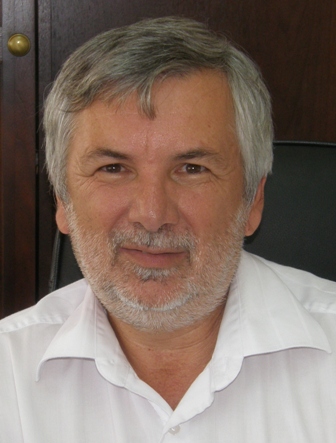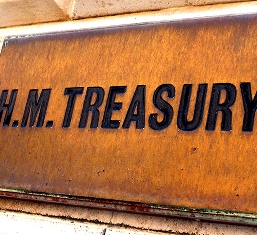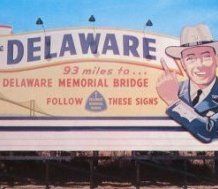Archive for November 1st, 2009

UK scientists resign over drugs row
 (Times Online): The Government is facing mass resignations from the official advisory body on drugs after the sacking of its chairman, The Times has learnt. Two members of the Advisory Council on the Misuse of Drugs quit yesterday in protest at Alan Johnson’s dismissal of David Nutt in a row over the relative harm caused by drugs and alcohol. The affair has led scientists to question the Government’s wider commitment to the independence of external scientific advisers, and raised fears that experts will become reluctant to sit on advisory panels. Scientists on the council are preparing a letter to ministers seeking assurances that they will remain free to set their agenda and to speak freely about their research and findings.
(Times Online): The Government is facing mass resignations from the official advisory body on drugs after the sacking of its chairman, The Times has learnt. Two members of the Advisory Council on the Misuse of Drugs quit yesterday in protest at Alan Johnson’s dismissal of David Nutt in a row over the relative harm caused by drugs and alcohol. The affair has led scientists to question the Government’s wider commitment to the independence of external scientific advisers, and raised fears that experts will become reluctant to sit on advisory panels. Scientists on the council are preparing a letter to ministers seeking assurances that they will remain free to set their agenda and to speak freely about their research and findings.

Port tender to face scrutiny
 (CNS): Auditor General Dan Duguay has confirmed that he will be undertaking an audit of the tendering process for the development of the cruise berthing facilities in George Town. Although no official announcement has yet been made on who will be awarded the contract to develop the controversial facility using private sector cash, Duguay says the process by which the bids have been invited, analysed and will ultimately be selected has raised some concerns. As a result, he said, his office will be looking into how the tender was conducted and why the CTC appears to have been by-passed.
(CNS): Auditor General Dan Duguay has confirmed that he will be undertaking an audit of the tendering process for the development of the cruise berthing facilities in George Town. Although no official announcement has yet been made on who will be awarded the contract to develop the controversial facility using private sector cash, Duguay says the process by which the bids have been invited, analysed and will ultimately be selected has raised some concerns. As a result, he said, his office will be looking into how the tender was conducted and why the CTC appears to have been by-passed.
Although this development will be a private finance initiative, claims by the leader of government business and the port chairman that the government will still own the port facility suggest that the process by which a developer was selected should still have gone through the Central Tendering Committee and not a specially appointed political committee.
Speaking to CNS, Duguay said that questions raised in the public domain, through media articles and calls to the talk shows, have indicated that the usual tendering process regarding government contracts of over $250,000 may have been by-passed. “There have been concerns about how this development, which is a government asset, has been tendered,” Duguay said when asked by CNS if he intended to examine the situation regarding the port.
“I would like to understand how this whole process has worked, what has actually happened and introduce some transparency into the process so we will be starting to gather information about how it was tendered as soon as possible.”
The auditor general acknowledged that, while this project is reportedly not using public funds, it is still a public asset and how decisions were made about who will develop it, as well as the ‘hows’ and ‘whys’, are still subject to public scrutiny.
“The financing arrangements of a government project should not affect how the decision on who will beawarded the contract is made. Who finances it is not important. The facility, we are being told, is still going to be owned by government,” Duguay explained, adding that given the size of this development it would be expected that the Central Tenders Committee would be involved.
Probably one of the largest developments undertaken by the government in recent years, Duguay said it was an audit that his office should be concerned with and he believed it would be a priority. “It is not unusual for the AG’s office to examine the process by which important government contracts are awarded,” he added.
The details of the proposed cruise facility development have not yet been fully revealed. However, Port Authority Chair Stefan Baraud told CNS this week that the goal had been to finance theproject without using government funds. As a result, a special committee was established headed by Baraud to seek out potential bids from contractors who were not just able to build but could pay for it too.
The committee included Woody Foster and backbench United Democratic Party MLAs Cline Glidden, Ellio Solomon, Dwayne Seymour and Captain Eugene Ebanks. Thirteen bids were reportedly received and examined by the committee, which whittled down the bids to four potential contractors. These have been submitted to Cabinet to enable government to pick the developer. Baraud said the committee made their decision using a scorecard to evaluate the proposals.
There has, however, been wide speculation from the start that the Dart Group would be the developer selected, in partnership with a local consortium of contractors and heavy equipment operators, who will construct the land side of the project, which will include a new retail centre and a land reclamation project. The decision is now expected to be made public on Wednesday.

UK losingbillions in VAT
 (BBC): The British Government has been losing out on as much as £1 in every £6 that it could be collecting in VAT revenue, according to research. The European Commission has been looking at avoidance of VAT across the EU to help it crack down on fraud. Analysis commissioned from a London consultancy found Britain had the biggest shortfall of any country. The government estimates underpayment for 2006 at nearly £13bn, while the EU research puts it at more than £18bn.
(BBC): The British Government has been losing out on as much as £1 in every £6 that it could be collecting in VAT revenue, according to research. The European Commission has been looking at avoidance of VAT across the EU to help it crack down on fraud. Analysis commissioned from a London consultancy found Britain had the biggest shortfall of any country. The government estimates underpayment for 2006 at nearly £13bn, while the EU research puts it at more than £18bn.

Cayman comes 4th in secret financial centres’ league
 (CNS): A new league table measuring the secrecy of onshore as well as offshore financial centres, has listed the Cayman Islands as number four on its list of 60 jurisdictions. However, Delaware, the US Vice President’s home state, has taken the top spot and the City of London is only one spot behind Cayman in fifth place. In the first ever detailed ranking of the world’s financial hubs, Delaware has been found wanting in 11 out of 12 secrecy indicators making it the world’s most secret place to do business.
(CNS): A new league table measuring the secrecy of onshore as well as offshore financial centres, has listed the Cayman Islands as number four on its list of 60 jurisdictions. However, Delaware, the US Vice President’s home state, has taken the top spot and the City of London is only one spot behind Cayman in fifth place. In the first ever detailed ranking of the world’s financial hubs, Delaware has been found wanting in 11 out of 12 secrecy indicators making it the world’s most secret place to do business.
The report and league table, a joint effort by Christian Aid and the Tax Justice Network, which will be published on Monday, comes rather ironically in the wake of Michael Foot’s report on the UK’s crown and overseas territories which recommends they all increase transparency — despite the fact that all of the other jurisdictions (with the exception of the Cayman Islands) in this report are listed as more transparent that the UK’s own financial centre.
This new league table also comesat the start of a week when the new tax haven abuse bill is expected to be brought before the US congress and before the next G20 finance ministers’ meeting in Scotland.
The opaque nature of the east coast state of Delaware, home to half of all America’s quoted companies, which has now been given the title of the world’s most secret financial sector, is seen as America’s weak link in its fight against tax evasion, the financing of terrorism and drug money laundering. Both the FBI and the Financial Action Task Force, the high-level international body set up to combat money laundering and terrorist finance, have repeatedly expressed concern at the way some US companies use the state as a base from which to operate under their radar.
According to the report, Delaware fails to place on public record details of trusts, company accounts and, crucially, the identity of beneficial owners – the people who receive the profits. It also allows companies to relocate to other countries, leaving minimal trace.
John Christensen, director of the Tax Justice Network and one of the authors of the report, said that secrecy is a core feature of the global financial system. “Jurisdictions compete with each other to provide it, in order to attract financial flows. But this comes at a price. Financial secrecy provides cover for money laundering, tax evasion and avoidance, insider trading, terrorist financing, embezzlement, Ponzi schemes, illicit financial flows, fraud and much more," he observed.
Speaking to the UK’s Observer, Delaware’s assistant secretary of state, Rick Geisenberger, said that companies did not choose the state for secrecy but for the sophistication of its judicial system, a similar and persistent claim made by those working in Cayman’s own financial sector.
The Financial Secrecy Index reportedly took 18 months to compile and was researched by academics as well as accountants. It uses findings from the Financial Action Task Force and 12 key indicators involving bank secrecy rules, disclosure of beneficial ownership and trust law. The only financial privacy indicator on which Delaware scores positively is that it is party to a large number of international tax information sharing agreements, but this is because those agreements are signed by the United States.
Given the criticism Cayman has faced recently from the US and the UK, the fact that Delaware is top of the table and the City of London one place behind may be ironic in itself but the fact that Cayman is on the list at all has drawn derision from Cayman Finance Chair Anthony Travers.
"Anybody who claims to have evidence that Cayman is opaque hasn’t read the IMF and Financial Action Task Force reports nor the US version from the General Accountability Office,” Travers told the Observer. He said the report had a selective bias and was totally discredited, and will be seen as such by everybody in the financial world.
He went on to tell CNS that the extent of the blatant double standard the Cayman Islands Financial Services Industry has been subjected to was revealedin the Observer story, which he said highlighted the opacity of Delaware. “Those who have expressed doubt about the reach and effect of the Cayman Finance public relations initiative should note that our comment is now sought and included with due prominence. TJN will be dismayed that their “report” has been met by the leading UK press with appropriate scepticism.”
Regardless of how the report will be received, The Tax Justice Network Director has said he believes the secrecy jurisdictions listed have driven the neo-liberalisation project that has skewered financial markets and turned them into criminogenic markets. “They can attract capital with no questions asked. What this reveals is the massive hypocrisy of OECD states," John Christensen claimed.
The author also noted that London’s Square Mile had been placed on the list because of its sheer size and vulnerability to financial crime. However, its poor standing will come as a blow to the UK government, which has been attempting to reverse the City’s reputation for light-touch regulation in the wake of the financial crash. The report’s authors also stated that the UK bears responsibility for pushing its overseas territories and dependencies down the route of offshore banking and finance, and should be considering a long-term subsidy to help them reshape their economies.
The report reveals that half of the world’s most secret jurisdictions are located in Commonwealth countries, crown dependencies or British overseas territories, and the UK’s support for financial secrecy globally has been substantial.
Explaining to the Financial Times how the authors reached their conclusions, Christensen said the index outlined how financial markets have secrecy at their core. He added that the rankings were made by giving each of the 60 centres an “opacity score”, which was weighted according to the jurisdiction’s significance in the world financial system.
Delaware emerged as the runaway winner, with the City of London’s size putting it in fifth place, Cayman came in fourth and Bermuda seventh. European nations fare badly as well, with Belgium and Ireland as well as Luxemburg and Switzerland in the top 10. Singapore, a jurisdiction that th Leader of Government Business McKeeva Bush has said he would like Cayman to imitate, came in eighth place.